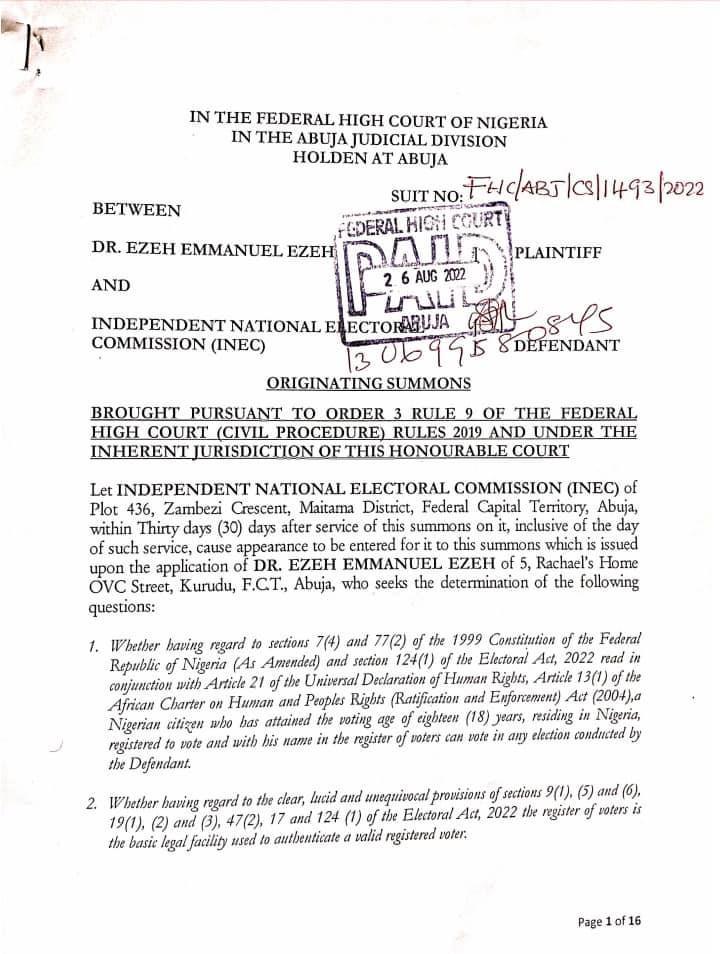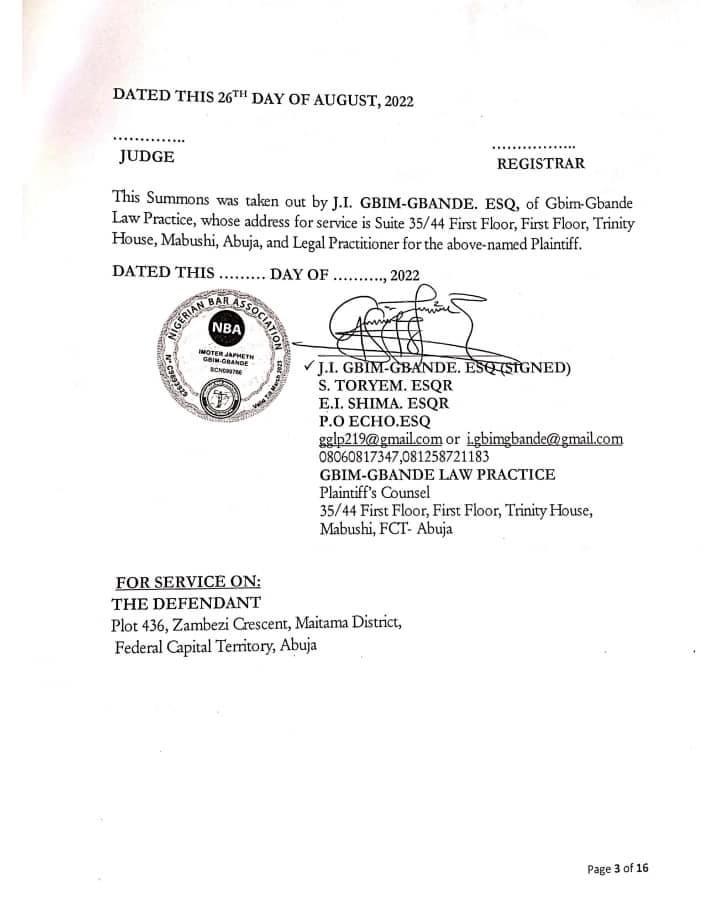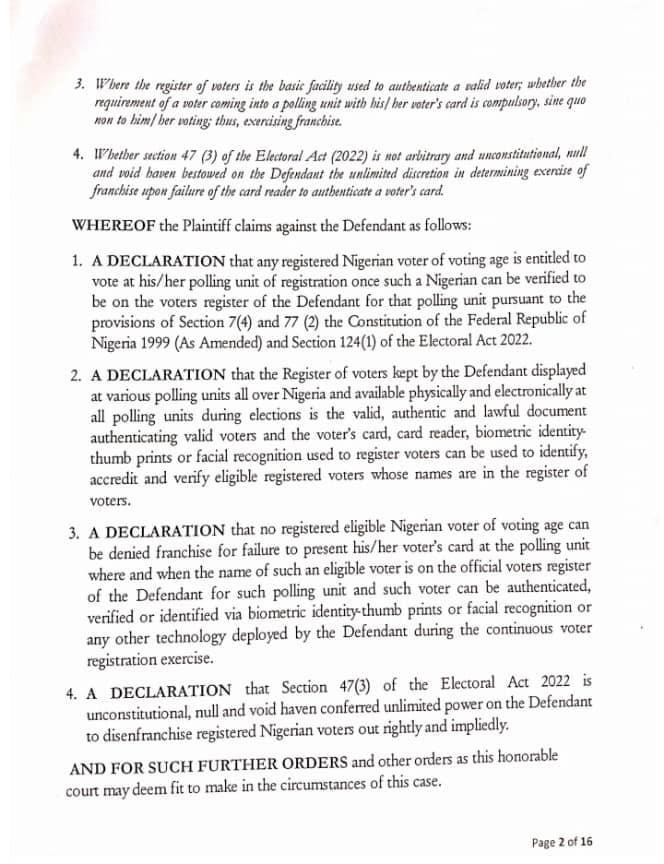Nigeria News
INEC dragged to court over authentication of valid voters card

Dr. E.M. Ezeh has dragged the Independent National Electoral Commission (INEC) to court on the issue of the basic legal facility recognized by law for the authentication of registered voters.
The plaintiff Counsel Imoter Gbim-Gbande Esq. On behalf of the Plaintiff (Dr. E.M. Ezeh) approached the Federal High Court, sitting in Abuja, via an Originating Summons, seeking for the following DECLARATIONS:
1. A DECLARATION that any registered Nigerian voter of voting age is entitled to vote at his/ her polling unit of registration once such a Nigerian can be verified to be on the voters register of the Defendant for that polling unit pursuant to the provisions of Section 7(4) and 77 (2) the Constitution of the Federal Republic of Nigeria 1999 (As Amended) and Section 124(1) of the Electoral Act 2022.
2. A DECLARATION that the Register of voters kept by the Defendant displayed at various polling units all over Nigeria and available physically and electronically at all polling units during elections is the valid, authentic and lawful document authenticating valid voters and the voter’s card, card reader, biometric identity, thumb-prints or facial recognition used to register voters can be used to identify, accredit and verify eligible registered voters whose names are in the register of voters.
3. A DECLARATION that no registered eligible Nigerian voter of voting age can be denied franchise for failure to present his/ her voter’s card at the polling unit where and when the name of such an eligible voter is on the official voters register of the Defendant for such polling unit and such voter can be authenticated, verified or identified via biometric identity- thumb prints or facial recognition or any other technology deployed by the Defendant during the continuous voter’s
registration exercise.
4. A DECLARATION that Section 47(3) of the Electoral Act 2022 is unconstitutional, null and void having conferred unlimited power on the Defendant to disenfranchise registered Nigerian voters outrightly and impliedly.
AND FOR SUCH FURTHER ORDERS and other orders as the honorable court may deem fit to make in the circumstances of the case.
It is the case of the plaintiff that Section 47(3) of the Electoral Act 2022 is unconstitutional as it seeks to disfranchise eligible voters by conferring unlimited powers on INEC contrary extant provisions of the Constitution.
The Constitution is Supreme, and having stipulated the basic requirements thereof, any provision of the Electoral Act, 2022 that is in conflict with the provision of the Constitution, should be declared unconstitutional, null and void to the extent of it inconsistency.
Counsel for the plaintiff J.I. Gbim-Gbande Esq with legal team, S.Toryem Esq., E.I. Shima Esq. and P.O. Echo Esq. expressed confidence that the suit having been filed, the matter shall be slated for hearing in no mean time.















